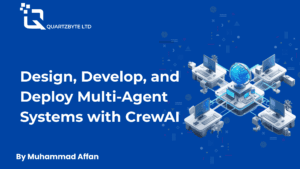Overview
In 2025, AI’s Role in Market Growth is no longer theoretical; it’s a central force accelerating both market expansion and cutting-edge technological innovation. Businesses that once treated AI as an optional tool now recognize it as an essential driver of growth, efficiency, and competitiveness.
This deep dive explores how AI is fueling market and technology growth in 2025, and what it means for forward-thinking organizations.
What is Driving AI’s Accelerated Growth?
Several key factors are contributing to the rapid advancement and adoption of AI:
- Advancements in Machine Learning and Deep Learning: Ongoing breakthroughs in neural networks and natural language processing (NLP) allow AI systems to understand complex data, learn patterns, and perform tasks with increasing accuracy and autonomy.
- Massive Data Availability: The explosion of data from digital interactions, IoT devices, and sensors provides the raw material needed to train smarter AI systems.
- Demand for Automation: As businesses aim to cut costs and improve efficiency, AI delivers the ability to automate processes, reduce errors, and speed up decision-making.
- Increased Investment and Collaboration: Tech giants, governments, and startups are investing heavily in AI research, fueling a collaborative environment that accelerates breakthroughs and commercialization.
AI’s Role in Market Growth
AI is reshaping markets by driving smarter business operations, deeper customer insights, and entirely new industry categories.
- Personalized Customer Experience: From chatbots to recommendation engines, AI personalizes every interaction. Real-time data analysis enables businesses to tailor services, offers, and support, boosting customer loyalty and conversions.
- Operational Efficiency and Cost Savings: AI optimizes logistics, automates back-office processes, and enhances production planning. Predictive analytics reduce waste, anticipate demand, and cut downtime in sectors like manufacturing and supply chain.
- Disruption and New Business Models: AI is enabling services that never existed before, such as autonomous deliveries, voice-activated financial tools, and generative content creation. Entire business models are emerging from AI capabilities.
- Data-Driven Decision Making: Businesses equipped with AI-driven insights can react faster to market changes, predict trends, and outperform competitors. Real-time analytics support smarter, more agile strategies.
- AI and Economic Growth: According to PwC, AI could contribute up to $15.7 trillion to the global economy by 2030. This includes increased productivity, improved customer experiences, and the creation of new products and services.
AI as a Catalyst for Technological Innovation
Artificial Intelligence is also the backbone of many emerging technologies, driving advancements that redefine industries.
- Accelerated R&D and Innovation: AI accelerates research and product development by analyzing massive datasets, simulating experiments, and even suggesting new hypotheses in fields like medicine, material science, and energy.
- Generative AI and Content Creation: Tools powered by AI are transforming how we design, write, code, and create art. Generative AI is becoming a co-creator in industries ranging from marketing to software development.
- AI-Powered Edge Computing and IoT: Combining AI with edge devices enables real-time decision-making without relying on the cloud. This is crucial for applications like smart vehicles, predictive maintenance, and automated agriculture.
Transformative Impact on Industries
- Healthcare: AI enhances diagnostics, personalized treatment plans, and accelerates drug discovery.
- Finance: AI detects fraud, automates risk assessment, and improves trading strategies.
- Transportation: AI powers autonomous navigation, smart traffic control, and logistics optimization.
- Education: Personalized learning platforms and AI tutors adapt to individual student needs.
Challenges and Considerations
Despite its benefits, AI adoption comes with important challenges:
- Data Privacy and Security: AI systems rely on sensitive data, raising concerns around misuse, breaches, and surveillance. Responsible data governance and compliance with regulations like GDPR are essential.
- Ethical and Responsible AI Development: Bias in algorithms, lack of transparency, and ethical decision-making remain pressing concerns. Organizations must prioritize fairness, accountability, and transparency in AI deployment.
- Skills Gap and Workforce Impact: AI will shift job roles across industries. Investing in upskilling and reskilling is key to enabling human and AI collaboration, rather than displacement.
- Responsible Deployment: Long-term success with AI depends on thoughtful deployment strategies that consider societal impact, sustainability, and ethical innovation.
Conclusion:
Artificial Intelligence is no longer an emerging trend; it’s a transformative force defining the next era of business and technology. In 2025, companies that strategically embrace AI will lead not only in efficiency and growth but also in innovation and impact.
Whether you’re building smarter products, improving operations, or creating new markets, AI is your catalyst.
Ready to Drive Your Tech Growth with AI?
Discover how Quartzbyte solutions can transform your business workflows and unlock new levels of efficiency and growth.
Contact us today for a consultation.




